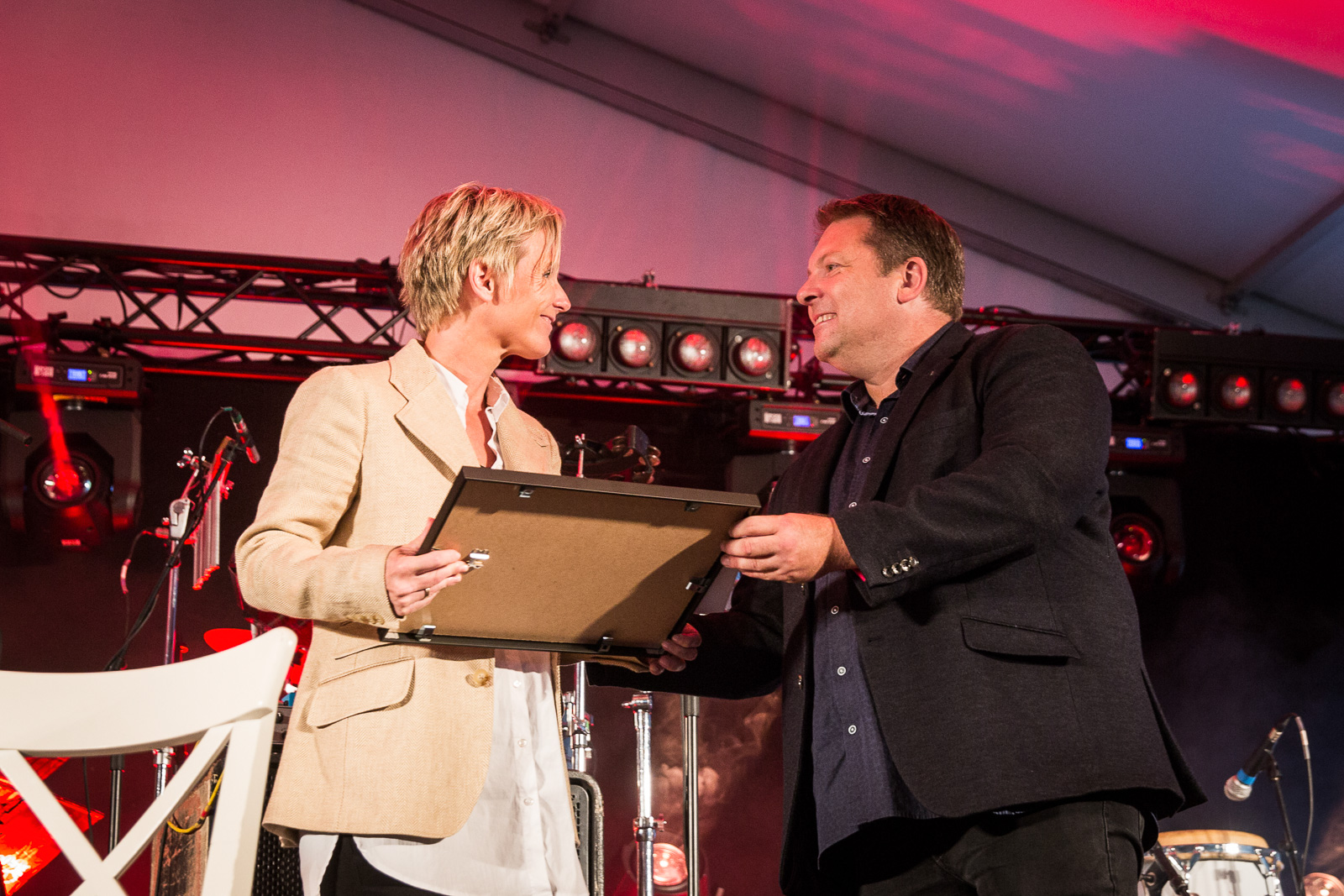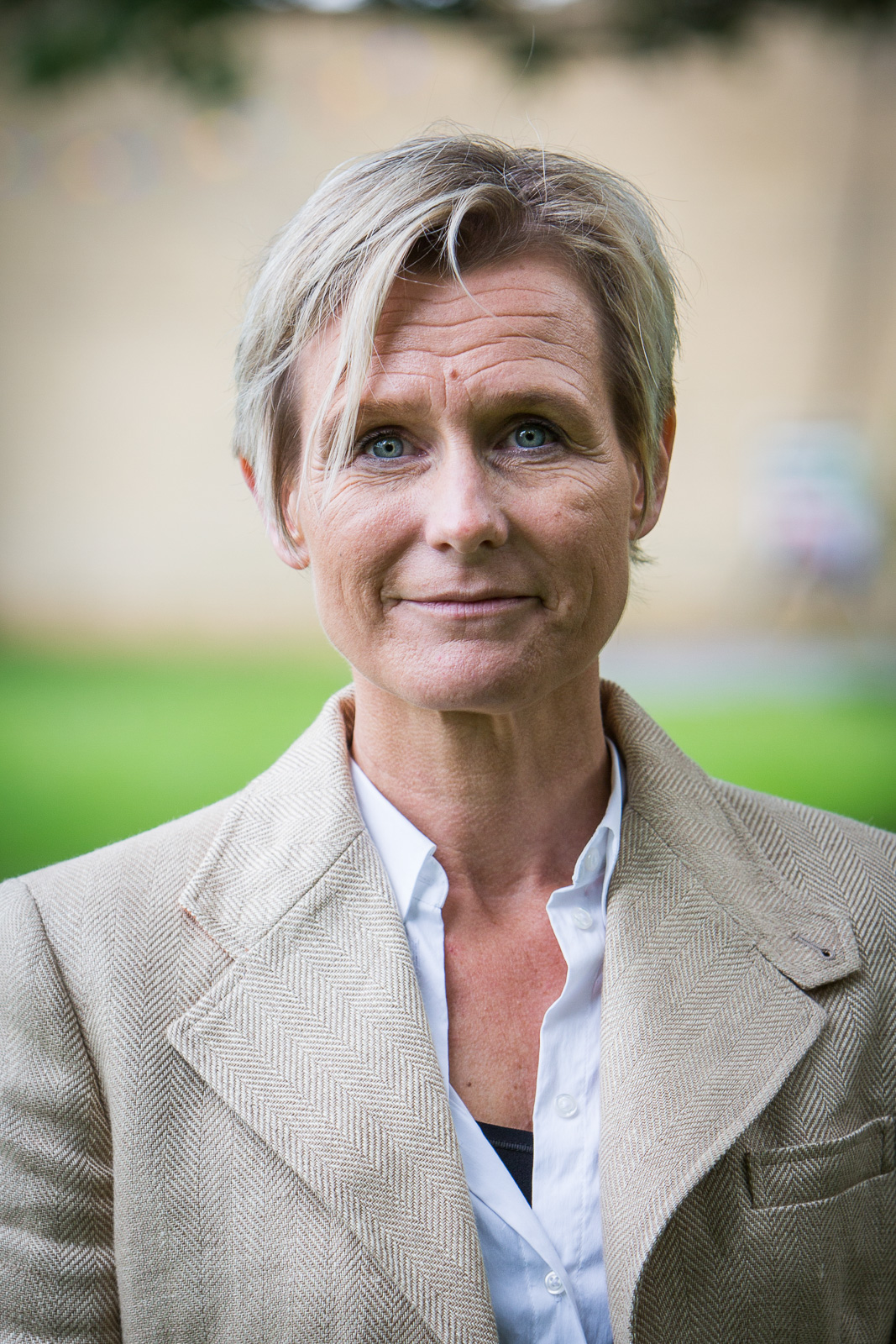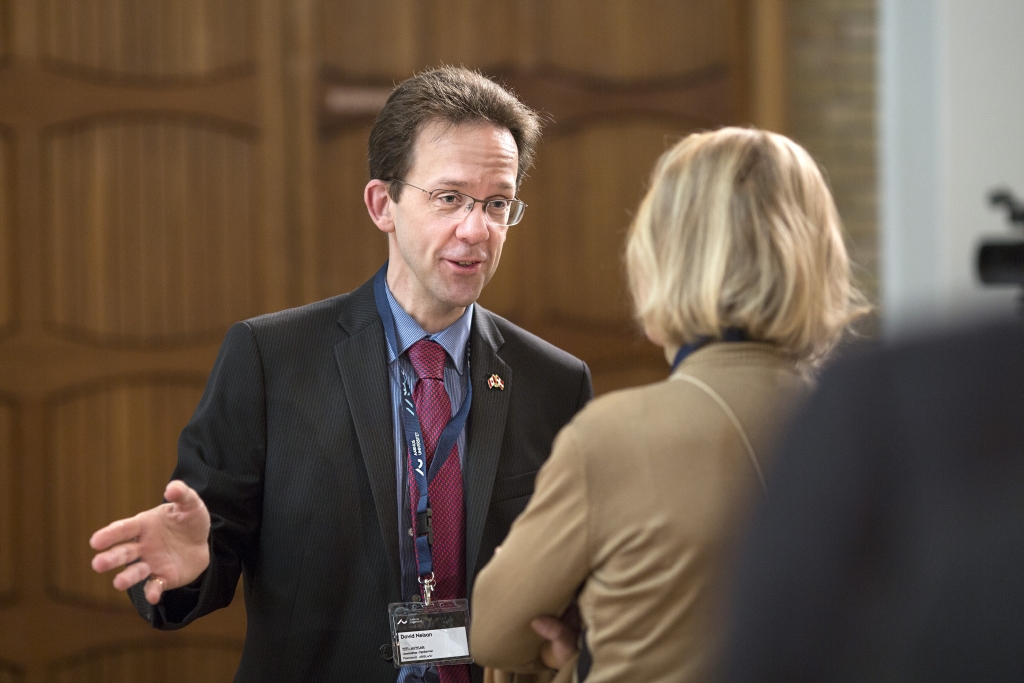Lecturer of the year 2017
Congratulations to the 2017 lecturer of the year: Associate Professor Anne Bøllingtoft, the Department of Management.


This year’s lecturer of the year award goes to the dedicated and acclaimed lecturer Anne Bøllingtoft. For a number of years, she has been a driving force in developing and fine-tuning the teaching in the course Organisational Behaviour, and colleagues and students describe her as a extremely attentive and energetic lecturer who takes a strong interest in her students’ learning.
“Anne Bøllingtoft truly deserves the award for Lecturer of the Year at Aarhus BSS - she excels at disseminating her knowledge, engaging in dialogue with the students, thinking out of the box and creating a varied teaching. This makes Anne one of our everyday heroes in terms of providing our students with a foundation for successful learning,” says Vice-dean for Education at Aarhus BSS Per Andersen and continues:
“Anne has continuously received outstanding student evaluations and through a decade, she has motivated a great number of students to dig deeper into questions on organisational behaviour and transformation management - in all stages of their academic career from Bachelors and Master’s to Executive Master’s level.
We have met Anne Bøllingtoft to talk about what constitutes a good lecture.
What are your thoughts when planning a lecture?
If the syllabus only consists of the information from the course book, the students won’t get much out of the lecture. So I carefully consider how I can get the students to reflect on key points in the syllabus. My task is to create an overview and to provide a perspective, and among other things, I do so by using lots of real-life examples. The course that I’m teaching (ed. Organisational Behaviour) is in fact extremely real-life and deals with people in organisations. Seen from the students’ perspective, they might reflect on what motivates and triggers them and makes them want to make an extra effort. I also use examples from the media, which the students will recognise and must consider using their own experiences. All in all, I try to take the syllabus from a theoretical to a real-life level. This is a very important component of my teaching.
In your opinion, what makes a good lecture?
When I see the enthusiasm and light in the students’ eyes. When I see and sense that they got something out of the lecture, and that they leave the lecture theatre with a better understanding of the syllabus, an ability to see things in a larger perspective and know how to use their knowledge in the future.
It’s important that the lecture is well-structured and that I have a plan for what I have to cover - and that I tell the students what they should be able to understand when they leave the lecture. But at the same time, variation is very important. It’s boring if I’m simply talking for two lesson. I can do it, but they will fall asleep. So I try to use a range of different tools. New technological tools that we can use in our teaching are constantly being introduced. For example Poll Everywhere which allows the students to ask questions during the lecture. The students are presented with a number of set answers which they will typically start of by discussing with the person sitting next to them and then answer individually online. It is a good tool in terms of giving feedback on the students’ understanding of the syllabus - also with close to 300 students in a lecture theatre.
You have developed a new teaching model, could you tell us a bit about that?
We’ve started working with study cafés, which run concurrently with the lecture series. The study cafés are structured so that they allow us to address the question of what characterises a good argument and how the students can structure a good answer. The study cafés include a short presentation from me, but apart from that, the students are working together while the student instructors and I circulate the room and help the students when necessary. In this way, I use the lectures for disseminating the actual subject matter in a broad sense, while I use the study cafés for handling the various differences that characterise the different classes. This creates the necessary flexibility as the course is offered on different degree programmes which might have different types of students.
What motivates you to continue to develop your teaching?
Without our students, we wouldn’t be here. We have to deliver carefully conducted research, but we most certainly also have to deliver good students and carefully planned and conducted teaching. Naturally, we need to do everything we can to make sure that our students are among the best. Good students are needed in the business community, they will become good ambassadors for AU and they are good PhD raw material.
How do you balance your teaching and research?
I conduct a lot of my teaching in the autumn semester. In the future, I am lucky enough to be able to do most of my teaching in the autumn and focus on my research in the spring. This doesn’t mean that I’m not doing any research in the autumn, but I’ve come to the conclusion that if I need to write a comprehensive application or research paper, I have to do so in the spring as this is where I can find the time.
How do you cooperate with other departments?
I am in close contact with the Department of Law. Among other things, because we could see that students on the BSc in Business Administration and Business Law were getting relatively low marks in some of the business administration courses. And this bothered us. Because the students are talented. So we’ve been exploring what kind of logic the students are taught on the BSc in Business Administration and Business Law and have compared it to the logic that’s needed by students in the field of business administration. In turn, this has made me aware that I need to teach the students how they should work with this subject in a slightly different way than if they were reading a legal textbook. This means that the students now have a better understanding of what to do, and now their grades match those of the other students.
How do you feel about becoming lecturer of the year?
I’m very honoured to be chosen as lecturer of the year. But I-m not achieving all of these good results on my own. That’s important for me to say. The administrative support is indispensable - the Studies Administration, the secretariat, the planning office and the student instructors. I could never do it alone.
About Anne Bøllingtoft
Anne Bøllingtoft completed her PhD at the Department of Management , Aarhus BSS in 2005. Since 2006, she has been employed at Aarhus BSS and has been teaching and conducting research into organisational behaviour, management and change management. In addition to continuously achieving impressive teaching evaluations, she has also published a number of journal articles and books.
Criteria for receiving the award
Applications may be based on teaching and educational activities in which the recommended candidate demonstrates several of the following competences:
- Excellent communication skills and ability to contextualise the academic content.
- Ongoing motivation of correlations between the academic content and the teaching methods and forms of evaluations applied in the teaching.
- Willingness and ability to engage in dialogue with students with a view to ensuring the ongoing follow-up the students’ learning
- Ability to create academic and methodological innovation in relation to dissemination and learning
- Ability to vary, develop and use different teaching methods
- Ability to teach and ensure learning at different academic levelsAbility to teach and ensure learning at different academic levels
- Ability to develop and strengthen the international dimension of the degree programmes at Aarhus BSS.
Following a recommendation, the recipient of the award is chosen by a committee of VIPs and students representing all the board of studies at the school.
